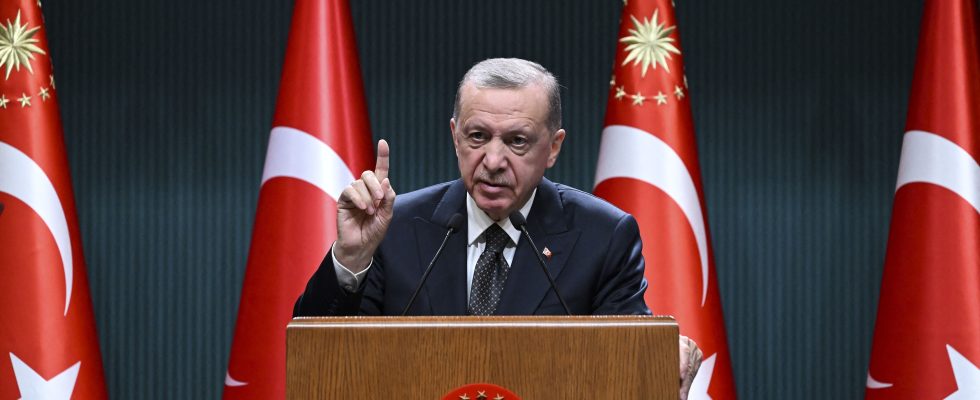The first episode of our story on the presidential election in Turkey can be found here:
EPISODE 1 – Almighty autocrat, candidate on the edge of the abyss.
May 14 is already shaping up to be a turning point for Turkey. 64 million voters will go to the polls, rather freely. “These are not the first elections in Turkey, this democracy has already demonstrated its robustness”, tries to reassure a French diplomat. The opposition is structured, organized, and monitors compliance with the laws in the polling stations.
The danger is not to be found on the side of massive fraud, but upstream of the elections. “Turkey has become a ‘competitive-authoritarian’ state, it is no longer a democratic regime with free and fair elections, says Berk Esen, professor of political science at Sabanci University in Istanbul. Certainly, we have regular elections, with opposition parties that can participate and sometimes win them, as we saw in the municipal elections in 2019. But, as the government controls the bureaucracy, can campaign with public money and inflicts immense pressure on civil society and the media, the playing field is uneven and automatically tilts in favor of the ruling party.”
A private free speech campaign
This year, the game promises to be even more delicate: the government has passed the most repressive law possible in terms of freedom of expression. Any remark qualified as “disinformation” can lead to prison. Social networks, the last space of freedom in Erdogan’s Turkey, are in the sights. “As Erdogan controls 90% of the media, freedom of the press and freedom of expression have effectively disappeared, points out Merve Tahiroglu, director of the Turkey program at the Project on Middle East Democracy. But, thanks or because of that, everything the world is on social media: around 5% of global Twitter discussions are in Turkish! This is far more than in Arabic, and as much as in Spanish. One of the main dangers is that on Election Day , during the counting of the votes, the government reduces or prohibits access to social networks…” A first worrying first attempt took place after the earthquakes of February 6, the authorities jamming Twitter to silence the wave of criticism against their inaction.
Despite his bad run, a regular victory for Erdogan remains possible. As a European diplomat stationed in Istanbul thinks, “Once in the voting booth, the Turks will choose stability and Erdogan, even if he is the one who created the chaos”. For months, the polls have all given Kiliçdaroglu the winner by five or six points, but the curves of the two candidates tend to approach each other, despite the earthquake and the mad inflation. And, of course, the polls can be wrong, especially with populist candidates, labeled “anti-system.”
The difficult respect of the game of democracy
The most likely scenario – and the most risky – remains that of a particularly tight presidential election. With his muscular campaign, Erdogan could well go to a second round on May 28. But then, what would the autocrat do in case of defeat? “We have already observed in the past that Erdogan was not ready to play the game of democracy, blows Sinan Ciddi, specialist in Turkey at the Foundation for Defense of Democracies, in Washington. In 2019, when his party lost the mayoralty of Istanbul, he had the vote annulled [NDLR : l’opposition l’avait tout de même emporté]. The risk is real, and it is serious: the Supreme Electoral Council, which oversees the elections, is full of people loyal to Erdogan. How to ensure that he enforces democracy?” Few observers imagine the president quietly leaving his place and leaving his white palace of 1,000 rooms built in 2014 on the hills of Ankara…
Beyond the precedent of Istanbul in 2019, the memory of the 2015 legislative elections haunts the minds in Turkey. That year, Erdogan’s party lost its majority in parliament in June, and found itself unable to form a government. New elections are therefore announced for November. “All of a sudden, the conflict with the Kurdish fighters of the PKK ignited, and Turkey turned into a war zone, with permanent terrorist attacks, recalls Karabekir Akkoyunlu, Turkey specialist at SOAS University. , in London. The atmosphere and the rhetoric changed drastically, very quickly, and the government regained its majority in Parliament after a campaign drenched in blood.” Here too, the November 13 attack in Istanbul, hastily attributed to the Kurds of the PKK, has revived fears.
The concern is all the stronger since, after the failed coup of July 2016, Erdogan cleaned up the police, laying off more than 150,000 civil servants. “He decapitated the army, the high civil service and the judiciary, he reviled and banished university professors, scientists… So today he has the possibility of carrying out a coup d’etat, warns the “lawyer Ardavan Amir-Aslani. But for that it would be necessary that the elections be contested, and not that he loses by too large a margin. It would be a Trump bis, but in Anatolia.” But, where Donald Trump had only relative control over the institutions after four years in power, Erdogan has been extending his for more than twenty years. The authorities are loyal to him. How much remains to be seen.
“It is possible that in the event of a defeat, in particular by a short head, Erdogan refuses to leave power, believes Merve Tahiroglu, of the Project on Middle East Democracy. In this case, his opponents will take to the streets en masse. Turkey is not Iran yet, and I don’t think the Turkish military or police are firing live ammunition at protesters, but the violence could be very strong… The Turkish people will need the international community to that time.”
